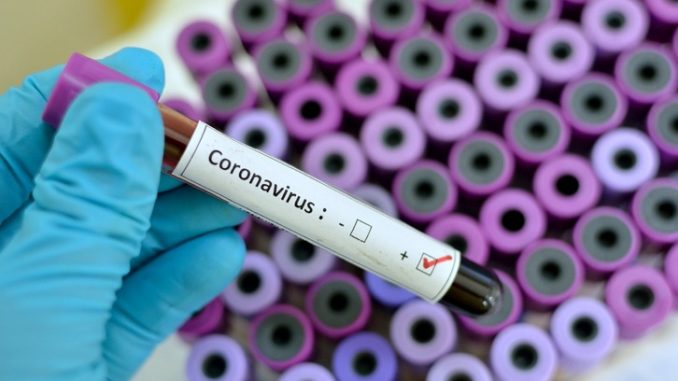
When a novel virus starts to spread, the news spreads it faster. Often, it is blown out of proportion and people unlikely to be affected begin to worry. In this article Practice Business explores ways practice managers can stop a respiratory nightmare from unfolding in their practices – long before Coronavirus becomes a real threat to the UK
Coronavirus, the novel Wuhan virus, is saturating the news; reports that the death toll has surpassed that of SARS in the 2000s are proliferating and articles about symptoms, spread, and newly affected countries are being stoked by political drama – The Sun even recently published an article about buying plastic, Coronavirus-resistant ‘tents’ to wear if travelling by plane.
In such a climate, it is very difficult to remain rational when a novel virus starts spreading. It is one of those extinction predictions insidious enough to seep into society and cause low-level, collective fear. The news feasts on this.
The news also feasts on uncertainty. Coronavirus – now renamed covid-19 – belongs to the same set of viruses that caused both SARS and MERS – but it also belongs to the same group of viruses responsible for the common cold; it can cause respiratory symptoms and pneumonia. The virus is of greatest threat to already vulnerable demographics, such as the elderly or those with compromised immune systems. Its death rate seems to be around 2% – but this assumption seems likely to be too high due to many cases with minor symptoms, and swift recoveries, slipping under the radar.
There are only nine confirmed cases of covid-19 in the UK at the time of writing. However, we aren’t sure how contagious the virus really is, and we aren’t certain of its incubation period. The lack of clear answers to these important questions gives licence to speculation about worst case scenarios, no matter how irrational.
The problem
Fear is fuel for prejudice and reports of increased xenophobia in relation to the covid-19 outbreak are starting to immerge. Newcastle University has issued a statement pleading for their students to ‘reinforce the importance of our inclusive ethos’ in response to ‘alarming’ racial incidents aimed at Chinese students.
The local effect of a global health frenzy can be profound. General practices may find themselves inundated with patients afflicted by respiratory symptoms – most of whom have nothing more alarming than the common cold – and practice managers may start to notice xenophobic behaviour in their waiting rooms.
As the interface between the public and the NHS, it is important that primary care employees do not stoke Coronavirus fears; it is important they have have up-to-date, unbiased information and act with purpose, but without panic or prejudice, and that efforts to keep the public safe are kept in proportion.
So, what should practice managers be doing to avoid escalating corvid-19 fears?
The solution
Taking the time to write corvid-19 updates on your practice’s website can be a really effective way of reaching patients. Writing a small statement on your website’s homepage, so it is most likely to be seen, with facts accompanied by a statement about not letting the news cause unnecessary panic, given the low risk, may help allay patient fears. This statement should also tell patients what to do if they have minor respiratory symptoms – such as ringing NHS 111, or speaking to a pharmacist first before visiting their GPs. Such advice may quell a rise in demand for appointments as fears about corvid-19 continue to circulate much more rapidly than the virus itself.
You can also use your practice’s social media accounts to share concise, factual and non-alarmist advice with patients. Twitter is an especially useful platform for updating the public and Instagram is an excellent way to combine infographics and written information and is an increasingly popular method of interacting with younger patients. If your practice does not yet have social media accounts, now might be an excellent time to create a presence online. With effective, reassuring virtual messaging online around corvid-19 you may be able to reduce the traffic in your actual practice.
Getting corvid-19 messaging right in your surgery is just as important. Take the time to create or procure posters or leaflets explaining the risk, symptoms, what to do in the case of exposure to the virus, and include a section about putting risk in perspective.
Positive, proactive and non-alarmist messaging in your practice could provide the antidote to the doomsday news patients are bombarded with every day – a reassuring leaflet or poster could go a long way.
What to do if someone with potential covid-19 attends your practice
As there are only nine confirmed cases, so far, in the UK, at this stage it is extremely unlikely someone with the disease will walk into your waiting room. However, it is important to be vigilant in relation to patients who have recently travelled to Wuhan or the surrounding regions.
If a patient rings the practice
Although there is a need for urgency when handling potential corvid-19 cases, it is just as important that the fear around it is quelled. In the short term, patient fear is likely to cause more practice problems than the epidemic in China.
You cannot change the news, and it is important to stay on top of the latest research to ensure your practice is prepared in case of an escalation in UK cases but, for now, what is most important is keeping everyone as level-headed as possible – and the practice manager is in the prime position to do so.
For more extensive government advice read their Novel coronavirus: interim guidance for primary care document.
Don’t forget to follow us on Twitter, or connect with us on LinkedIn!

Be the first to comment